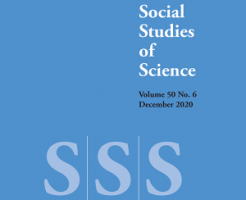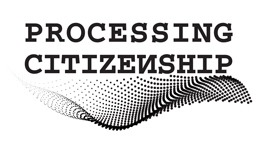New PC publication “Identification as Translation” on Social Studies of Science

Identification at the border has usually been conceived of as a matter of bilateral and unmediated relationship with the State, but what happens when identification is conceived of as translation? The latest article by Annalisa Pelizza investigates the practical and theoretical consequences of such a shift in framing identificationat at the border.The latest article is titled “Identification as translation: The art of choosing the right spokespersons at the securitized border“, was authored by A. Pelizza and is published on Social Studies of Science.
The article pursues a translational approach to the securitization of migration. It argues that sociotechnical processes of identification at the border can be conceived of as translations into legible identities of individuals who are unknown to authorities
The article contributes to the materiality debate on securitization across Critical Security Studies (CSS) and Science and Technology Studies (STS) by answering the call to conduct empirical explorations of security, and by revisiting the potential of the early sociology of translation (i.e. actor-network theory) to account for the identification of border crossers. Data collection was conducted at four identification facilities in the Hellenic Republic.
Three sets of implications for the CSS-STS debate on the materiality of securitization are discussed. First, a translational approach can replace a representational understanding of identity with a performative apprehension of identification. Second, adopting a translational approach leads to acknowledge that the identification encounter is mediated by multiple, heterogeneous actors. It thus helps to open technological black boxes and reveal the key role of material qualities, affordances and limitations of artefacts. Third, a translational approach to the securitization of migration can help advance the field of ‘alterity processing’ by appreciating the de facto re-arrangements of institutional orders elicited by techno-political alignments with global security regimes.
The article is published online first at https://journals.sagepub.com/doi/full/10.1177/0306312720983932 and will be soon released Open Access.
